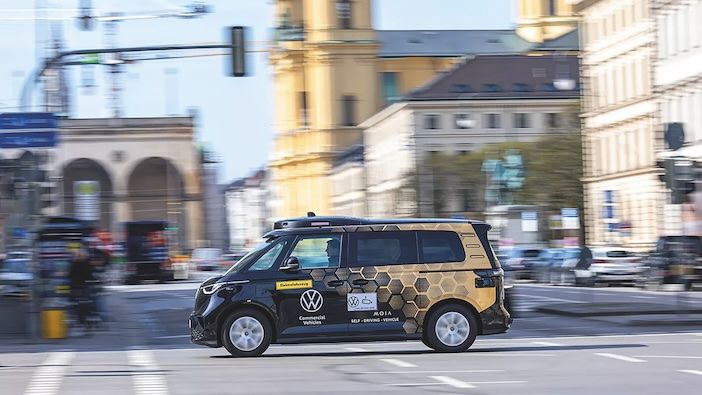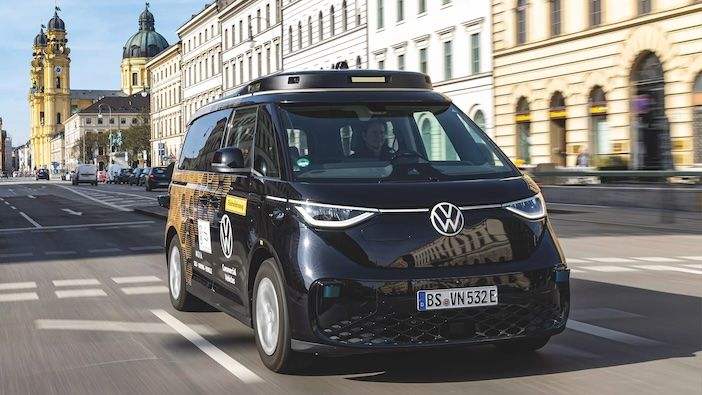The German Federal Ministry for Digital and Transport Affairs (BMDV) has published its Strategy for Autonomous Driving in Road Traffic, which aims to establish Germany as a global leader in autonomous vehicle innovation and production.
A key component of the strategy’s implementation will be C-ITS (Cooperative Intelligent Transport Systems) technology, which enables crucial vehicle-to-infrastructure communication.
Kapsch TrafficCom has stated it is ready to provide such technology for autonomous vehicles, with the company’s systems are already being utilized on German freeways for construction site warnings. Kapsch technology enables real-time traffic flow analysis, emergency vehicle traffic light prioritization, and direct vehicle communication for accident and congestion warnings.
Alongside the overview of the strategy there has been published a further, detailed, 122-page document in German, which acts as a comprehensive handbook implementing autonomous public transport.
Autonomes Fahren im öffentlichen Verkehr (Autonomous driving in public transport) provides detailed guidance on achieving autonomous driving integration through four distinct phases: planning framework and preparation, strategy development, operational planning, and implementation with success control.
The strategy emphasis on public transport is seen as a catalyst for wider autonomous system innovation. By improving network connectivity, the initiative aims to enhance the efficiency and attractiveness of public transportation services. The government believes that even a limited number of equipped vehicles can significantly improve overall traffic conditions.

Despite Germany’s pioneering position in establishing legal frameworks for autonomous driving, the country has faced challenges in developing a robust domestic autonomous vehicle industry.
While countries like the United States and China have had driverless robotaxis operating since 2018 and mid-2023 respectively, Germany is only now beginning public test drives, with projects like Moia in Hamburg and Kira in Hesse leading the way.
As Germany works toward these goals, there is a strong focus on international collaboration, with efforts being made to advance EU-wide harmonization of autonomous and connected driving standards.
This approach, supported by industry leaders like Kapsch TrafficCom, aims to ensure compatibility and safety across borders while accelerating the adoption of autonomous driving technology throughout Europe.





